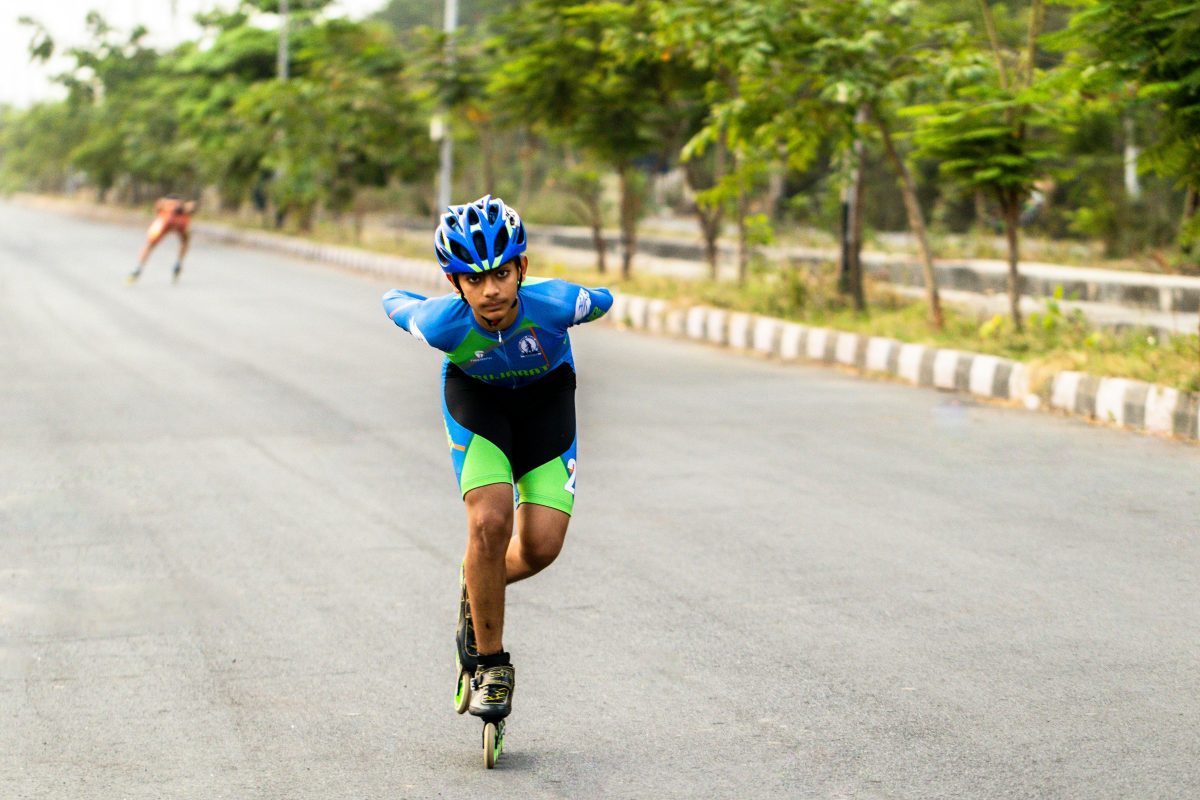Last Updated on: 14th July 2024, 09:33 am
Introduction to Genetics and Athletic Performance

The quest to understand the pinnacle of athletic abilities has led scientists to the complex world of genetics, where the blueprint of our potential lies. Genetic factors play a pivotal role in determining muscle composition, endurance, and even the likelihood of injuries, making them a cornerstone of athletic prowess. The journey into the genetics of sports began in earnest in the late 20th century, as researchers sought to unravel the secrets of elite athletes.
This exploration sparked a debate as old as time: nature versus nurture. Is athletic success primarily the result of genetic endowment or the environment and training? While genetics provide the framework, the impact of dedicated training, diet, and psychological resilience cannot be understated. This interplay between genetics and environment shapes the landscape of athletic performance, making it a fascinating field of study.
Understanding the genetic underpinnings of athletic performance not only satisfies our curiosity but also opens the door to personalized training regimes and injury prevention strategies, heralding a new era in sports science.
Understanding the Genetic Markers Linked to Athleticism

The intricate dance between our genes and athletic ability is a fascinating spectacle. Specific genes have been identified as key players in muscle composition and endurance. These genetic markers are the unsung heroes behind the scenes, determining how our muscles respond to training, their efficiency in using oxygen, and their recovery speed after strenuous exercise.
- ACTN3 gene: Often referred to as the “sprinter gene,” linked to fast-twitch muscle fibers, contributing to explosive strength and speed.
- ACE gene: Can influence endurance, by affecting how muscles use oxygen during prolonged physical activity.
Case studies of elite athletes have shed light on the presence of advantageous genetic markers. These athletes, through no design of their own, have hit the genetic jackpot, possessing a combination of markers that enhance their performance. This genetic edge, coupled with rigorous training and optimal nutrition, sets them apart in the competitive world of sports.
The exploration of genetics in athleticism doesn’t just satisfy our curiosity; it paves the way for groundbreaking approaches in training and injury prevention. By understanding the genetic factors at play, coaches and athletes can tailor training programs that maximize genetic potential while minimizing the risk of injuries. This personalized approach to training represents the future of athletic performance, where genetics and hard work combine to create champions.
The Impact of Genetics on Sports Specialization

Genetics significantly influence an athlete’s suitability for endurance versus power sports. The presence of specific genetic markers, such as the ACTN3 gene, can predispose individuals to excel in power-based activities, like sprinting, by enhancing fast-twitch muscle fibers. On the other hand, variations in the ACE gene can boost endurance capabilities, making some naturally better suited for long-distance running. This genetic predisposition plays a crucial role in determining which sports an athlete might excel in, guiding early specialization and training focus.
For young athletes, understanding their genetic makeup can be a game-changer. Early identification of genetic predispositions allows for tailored training programs that align with their natural strengths, potentially reducing injury risk and optimizing performance. This early specialization, however, raises ethical considerations. The prospect of genetic testing for guiding young athletes into specific sports sparks debate. Concerns revolve around the pressure it might place on children, the potential for discrimination, and the risk of overlooking the importance of passion, dedication, and hard work.
Despite these concerns, the role of genetics in sports specialization cannot be ignored. It offers a unique insight into how we can better understand and nurture athletic talent from a young age. Ethical guidelines and a balanced approach, valuing both genetic potential and personal choice, are essential in harnessing this knowledge responsibly. As we navigate this new frontier, the promise of genetics in shaping the future of sports is undeniable, offering a personalized path to achieving athletic excellence.
Genetics vs. Training: Finding the Balance

The interplay between genetic potential and training intensity is a delicate dance. Genetics lay the foundation, offering a glimpse into an athlete’s potential. Yet, without the rigor of training, this potential remains just that—a possibility. Training, on the other hand, can only amplify what genetics have provided. It’s a symbiotic relationship where one cannot thrive without the other.
- Genetic advantages: Impressive as they may be, hit a ceiling without proper training.
- Training: Without the backing of favorable genetics reaches its limits.
Success stories abound, showcasing athletes who, through relentless training, have maximized their genetic potential. These stories are not just about physical triumphs but also about the indomitable human spirit. They serve as a testament to what can be achieved when genetics and training converge in harmony. Athletes like Usain Bolt and Michael Phelps have become legends not solely because of their genetic gifts but because of their dedication to pushing the boundaries of those gifts through rigorous training.
This balance between genetics and training is not just about achieving athletic excellence; it’s about realizing one’s full potential. It’s a journey that requires understanding, patience, and perseverance. As we continue to explore the depths of genetic influence in sports, let us not forget the role of hard work, determination, and the heart of a champion.
The Future of Genetics in Sports

The horizon of sports is rapidly expanding, thanks to the leaps in genetic testing and the crafting of personalized training programs. These advancements promise a future where each athlete’s training is as unique as their DNA, optimizing their natural abilities and minimizing injury risks. Imagine training regimes so tailored that they unlock the full potential of an athlete’s genetic makeup, propelling them to new heights of performance.
Yet, the potential for genetic modification looms large, stirring a mix of excitement and ethical dilemmas. The possibility of enhancing athletic abilities through genetic engineering is no longer the stuff of science fiction. Such advancements could redefine the very nature of sports, introducing a new era of superathletes. But at what cost? The implications of genetic modification in sports are profound, challenging our notions of fairness, integrity, and the human spirit of competition.
These genetic frontiers come with their share of ethical, legal, and social considerations. The debate is multifaceted, touching on issues of privacy, consent, and the potential for genetic discrimination. How do we navigate the fine line between enhancing performance and maintaining the essence of sportsmanship? The conversation extends beyond the scientific community, requiring a societal dialogue to address these pressing questions. As we stand on the brink of these genetic revolutions in sports, it’s imperative to foster an environment of ethical reflection, legal clarity, and social acceptance. Only then can we harness the full potential of genetics in sports, ensuring a future that respects both human diversity and the spirit of competition.
Conclusion: Embracing Genetics in Athletic Performance Enhancement

The role of genetics in athletic prowess is undeniable. Our DNA shapes the very core of our physical capabilities, influencing everything from muscle composition to endurance. Yet, it’s the harmony of genetics and training that truly creates champions. Recognizing this, we must maintain a balanced perspective, acknowledging the power of our genes while not diminishing the hard-earned gains of training.
- Importance of Further Research: As we delve deeper into the genetic aspects of sports, the importance of further research becomes clear. It’s this knowledge that will drive the responsible use of genetic information, ensuring that the future of sports remains fair and true to the spirit of competition.
- Revolutionizing Training and Performance: We stand at the threshold of a new era, where genetic insights could revolutionize training and performance. But with great power comes great responsibility.
Therefore, let us move forward with caution and curiosity. Let us embrace the potential of genetics in sports, while upholding the values that make athletic competition great. The journey ahead is as exciting as it is uncertain, and it is our collective responsibility to navigate it with integrity and foresight.
In Closing
Genetics shapes champions, but training forges them. This synergy between DNA and dedication unlocks unparalleled potential. As we navigate the intricate relationship between genetic endowment and rigorous training, we uncover the blueprint for athletic excellence, balancing the gifts of nature with the grit of perseverance. Let us boldly embrace this journey, fostering a future where genetic insights and ethical considerations converge to elevate the spirit of athletic competition.
The Role of Genetics in Athletic Performance FAQs
While there are no specific genes solely responsible for flexibility, genetic variations can influence the structure and elasticity of collagen in the body, affecting joint mobility and muscle length. These genetic factors, combined with environmental influences like training and diet, determine an individual’s overall flexibility. Flexibility is crucial for many athletic disciplines and can be enhanced through regular stretching and mobility exercises.
Yes, genetic factors can influence an athlete’s risk of injury by affecting bone density, ligament and tendon strength, and overall joint stability. Certain genetic markers are associated with a higher susceptibility to injuries such as ACL tears or stress fractures. Understanding these genetic predispositions can help in tailoring prevention and recovery programs for athletes.
Genetic testing can provide insights into an individual’s potential for sports talent, particularly by identifying genetic markers associated with physical performance and endurance. It can highlight predispositions to excel in certain types of physical activities but cannot predict success with absolute certainty due to the influence of training, psychology, and opportunity.
Genetics can guide the identification of the most beneficial types of exercise for an individual by highlighting natural strengths and predispositions towards endurance, strength, or power activities. Understanding one’s genetic makeup can help tailor training programs to optimize performance and enjoyment. However, personal preferences and goals also play a significant role in choosing the best type of exercise.
Genetics influence muscle recovery speed by affecting how quickly and efficiently the body repairs and builds muscle tissue after exercise. Variations in genes related to inflammation and muscle growth can impact recovery times and susceptibility to injury. This genetic predisposition highlights the importance of personalized training and recovery strategies for athletes.
Genetics contribute to aspects of sports psychology and mental toughness, including stress response, focus, and resilience. Certain genetic markers are associated with a greater capacity for handling pressure and recovering from setbacks. This genetic influence, combined with personal experiences and training, shapes an athlete’s psychological approach to competition.
Genetics significantly impact endurance by influencing VO2 max (the maximum amount of oxygen the body can utilize during intense exercise), muscle fiber type distribution, and energy metabolism. These genetic factors can make some individuals more naturally predisposed to excel in endurance sports like long-distance running or cycling. However, endurance can also be greatly improved with targeted training regardless of genetic background.
Genetics play a crucial role in determining an athlete’s VO2 max by influencing factors such as lung capacity, heart size, and muscle efficiency. These inherited traits can set the upper limit of an individual’s potential for aerobic performance. However, VO2 max can also be significantly improved through endurance training, regardless of genetic predisposition.
Genetics plays a significant role in determining athletic performance, influencing physical traits such as muscle composition, cardiovascular efficiency, and skeletal structure. These genetic factors can predispose individuals to excel in specific sports by enhancing traits like endurance, strength, and agility. However, environmental factors and dedicated training are also crucial in reaching elite levels of performance.
The ACTN3 gene, often referred to as the “speed gene,” has been linked to improved performance in sprinting and power activities. Individuals with specific variants of this gene have a higher prevalence of fast-twitch muscle fibers, which are crucial for explosive movements. However, possessing the gene alone is not a guarantee of athletic success without rigorous training and proper nutrition.
Orlando is a all round athlete from Australia, now resident in Germany. His sports of passion of American Football(Offensive line), weight training and indoor rock climbing where he uses his 195cm wing span to his advantage.



